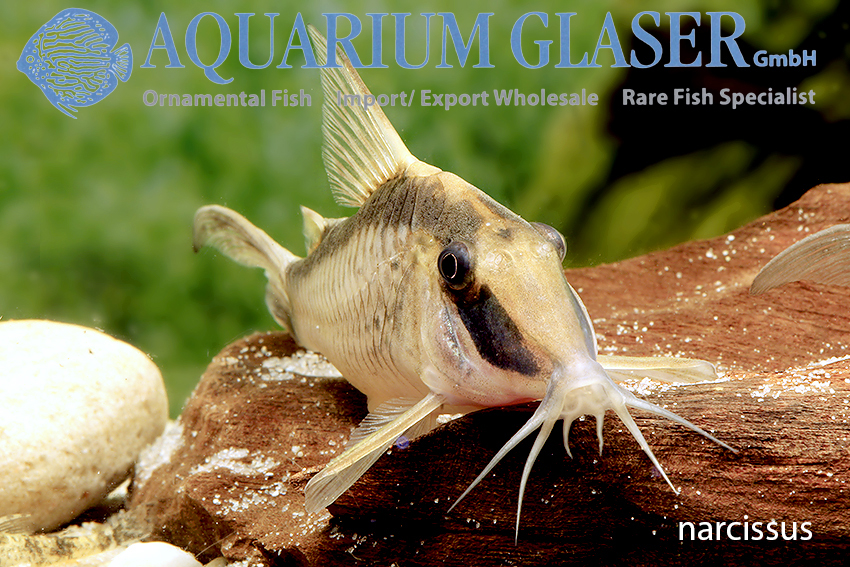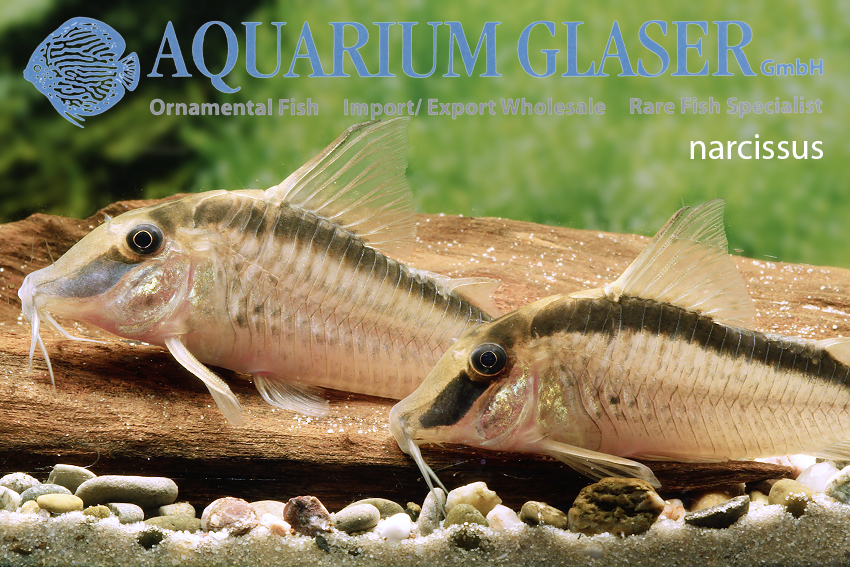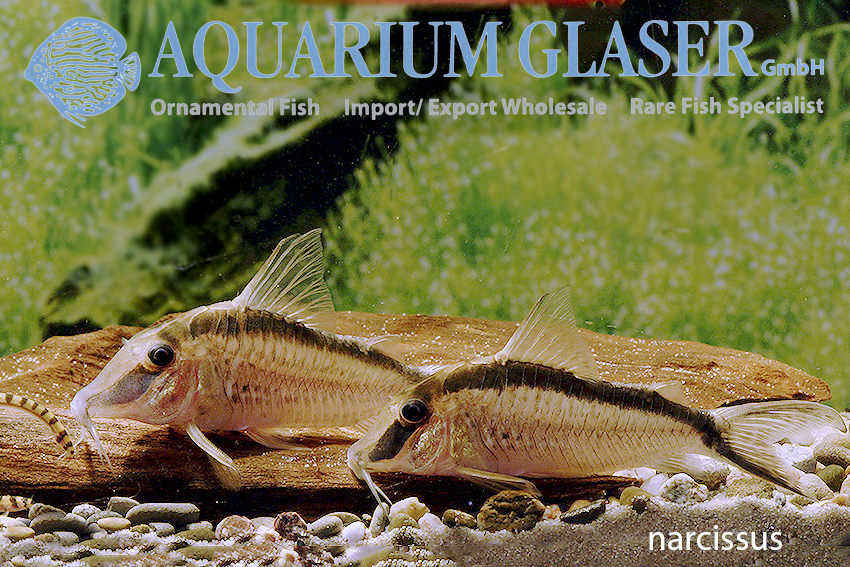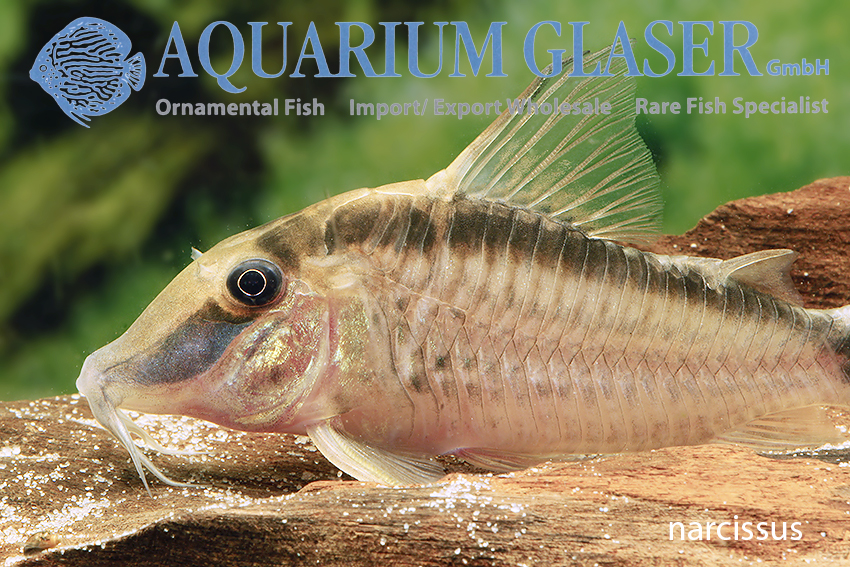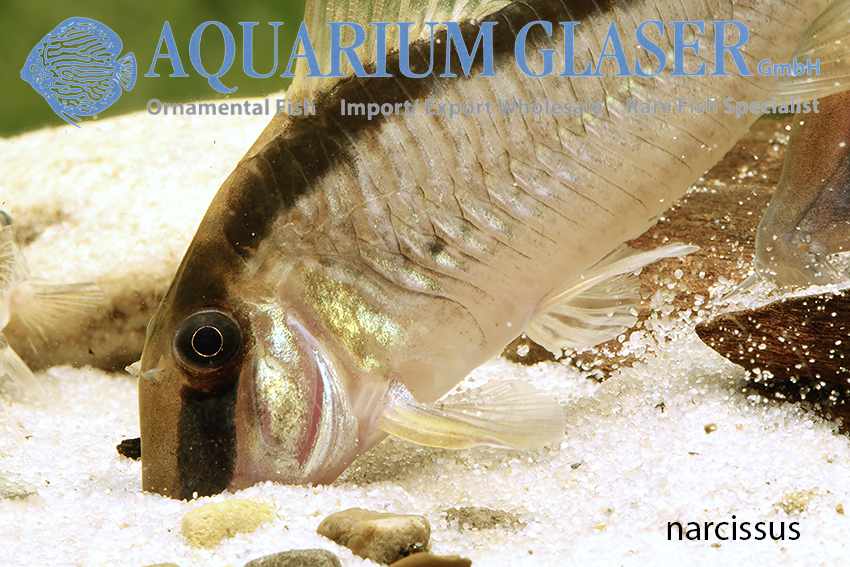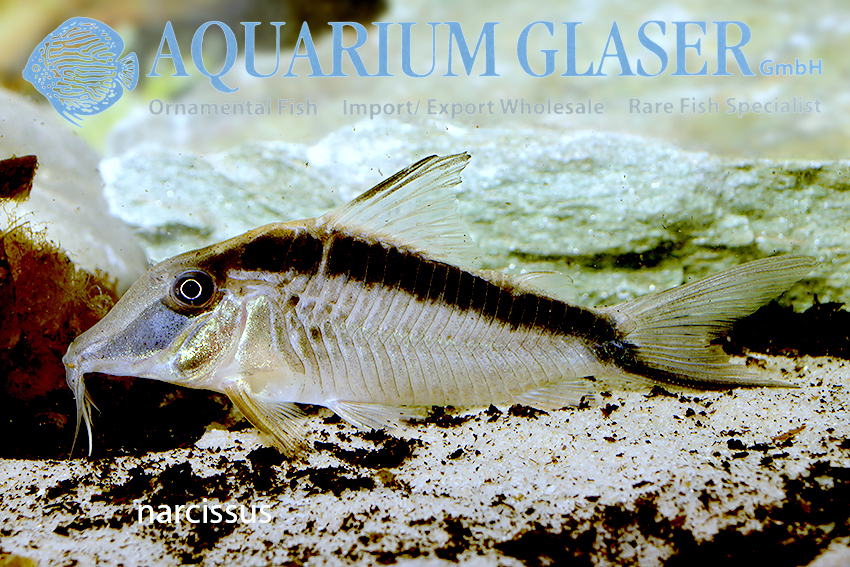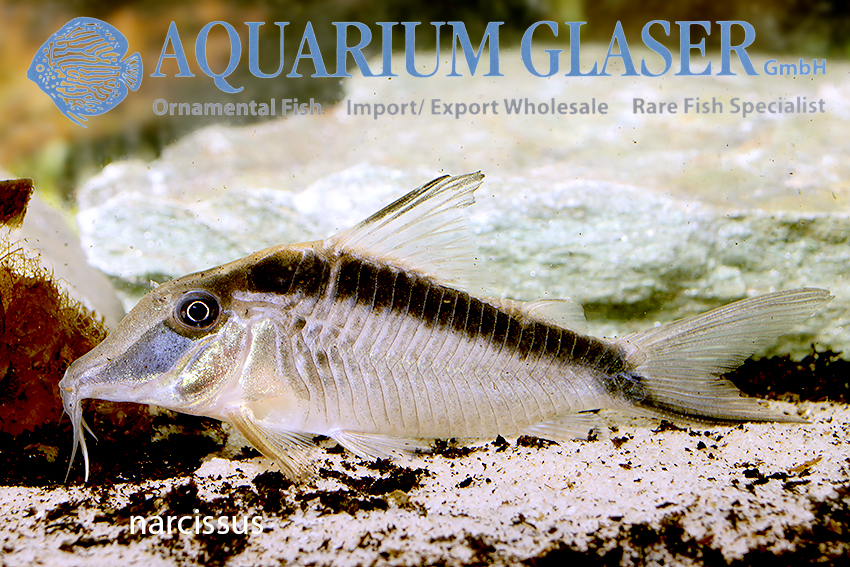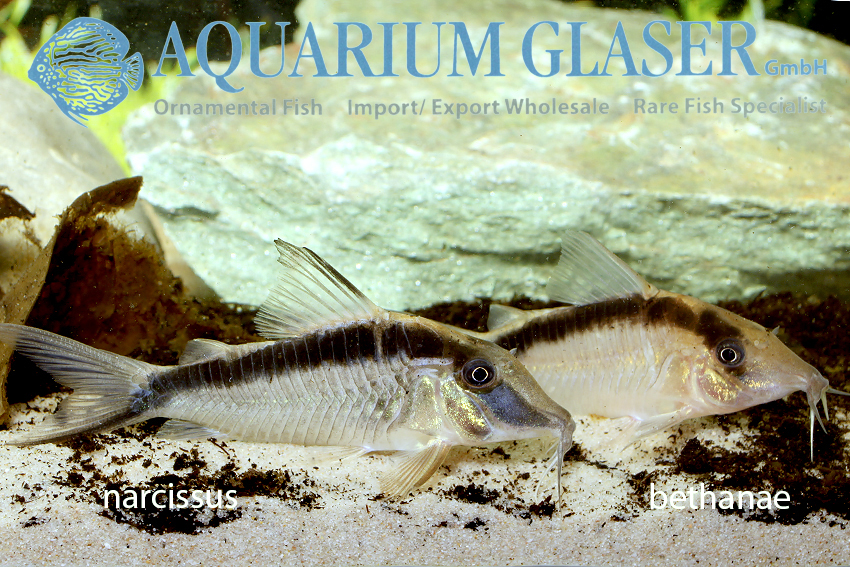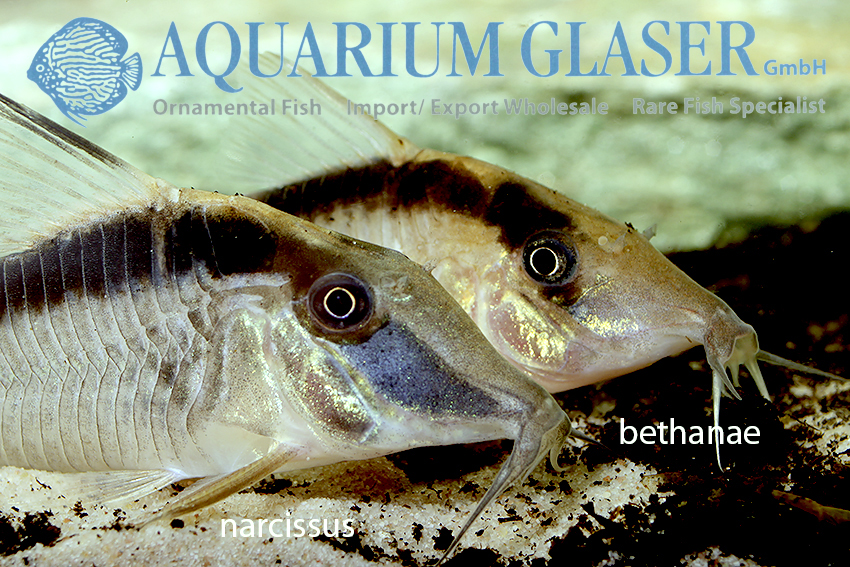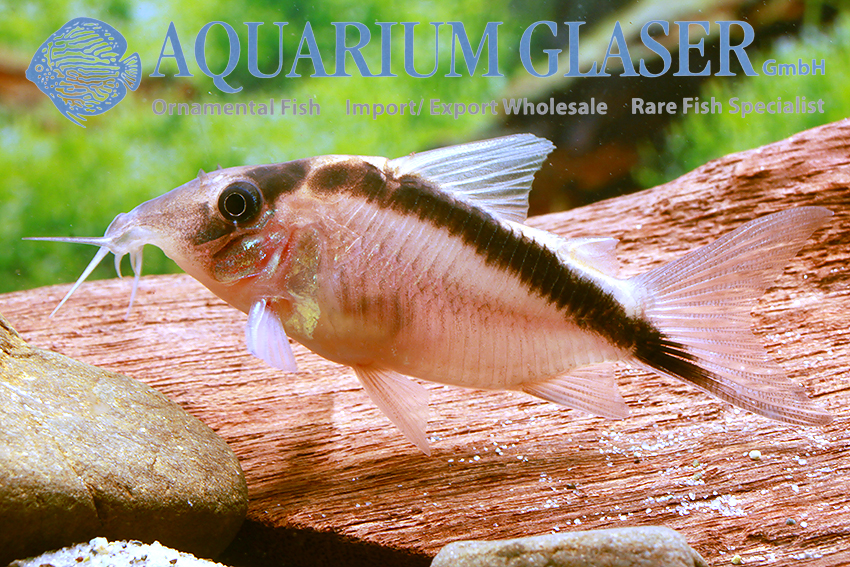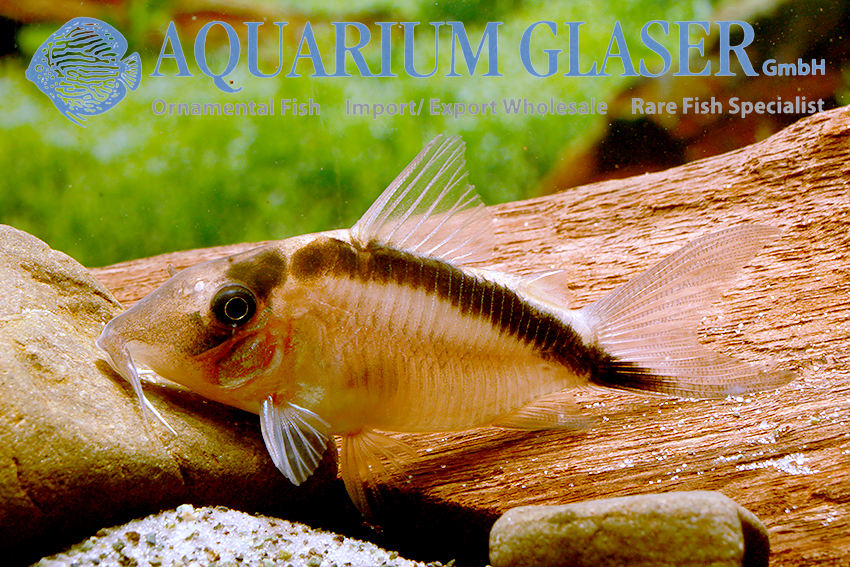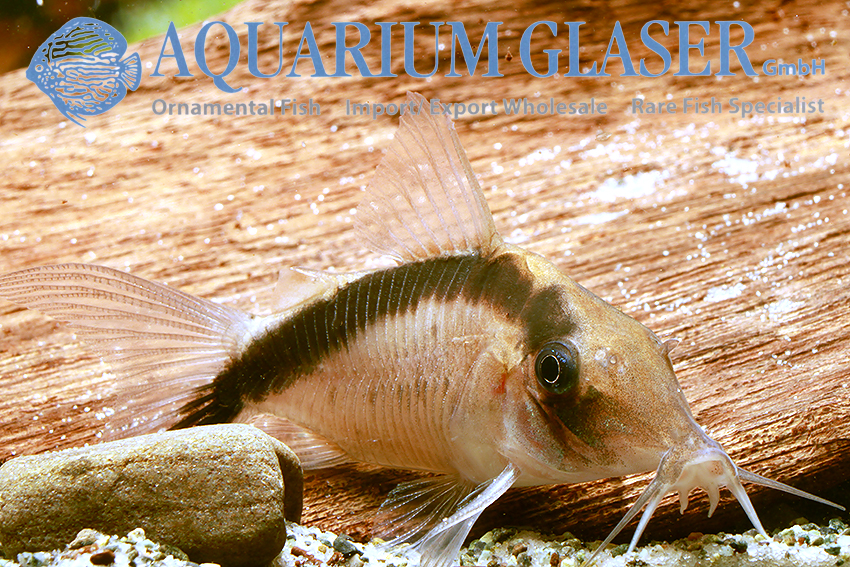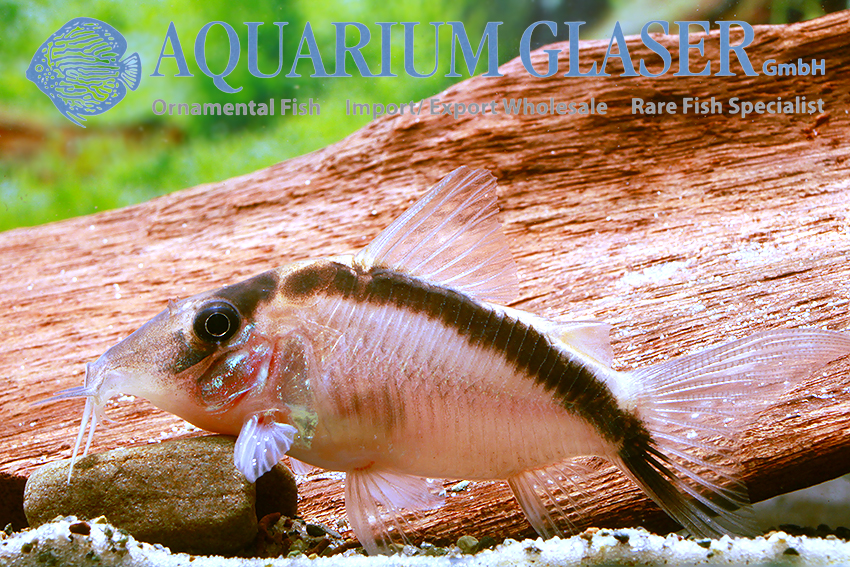The changed export regulations in Brazil, which have been valid for some time, have now made it possible to import Corydoras narcissus again after a long time.
Corydoras narcissus is a beautiful, relatively large armored catfish. The maximum length is given with 10 cm. The species comes from Brazil, more precisely from the drainage of the Rio Purus. Like all saddlenosed Corydoras, C. narcissus is less gregarious than other Corydoras. Breeding requires large aquariums. When breeding approaches, it should be noted that many saddlenoses can become very aggressive towards each other when in a mating mood; breeders have even reported deaths. In “normal” care, however, such a thing does not happen!
The unusual name was given to the beautiful and otherwise very peaceful fish because the collectors who gave the animals to the first describers suggested to them that they should name the new species in their (the collectors’) honor. However, the first descriptors did not want to put up with this impudent encroachment on the freedom of science and therefore named the armored catfish after the Greek demigod Narciss, who fell in love with his own reflection and whose name has since been synonymous with self-indulgence.
From Peru comes a second, similar species that has only recently (2021) been scientifically described: Corydoras bethanae. In the hobby, it has therefore been referred to as C. narcissus II or CW6, while the actual species has been referred to as C. narcissus I. This is somewhat misleading, as the two species are not particularly closely related and may even be placed in different genera once Corydoras are scientifically revised. Corydoras bethanae is a longnose, does not grow quite as large, is more flesh colored (unlike the whitish C. narcissus), has a transparent dorsal fin spine (black in C. narcissus), and the dorsal band ends at the eye (runs across the snout in C. narcissus).
Therefore, one can easily tell the two species apart even without knowing their origin.
For our customers: Corydoras narcissus has code 237104, C. bethanae 237204 on our stocklist. Please note that we only supply to wholesalers.
Text & Photos: Frank Schäfer





